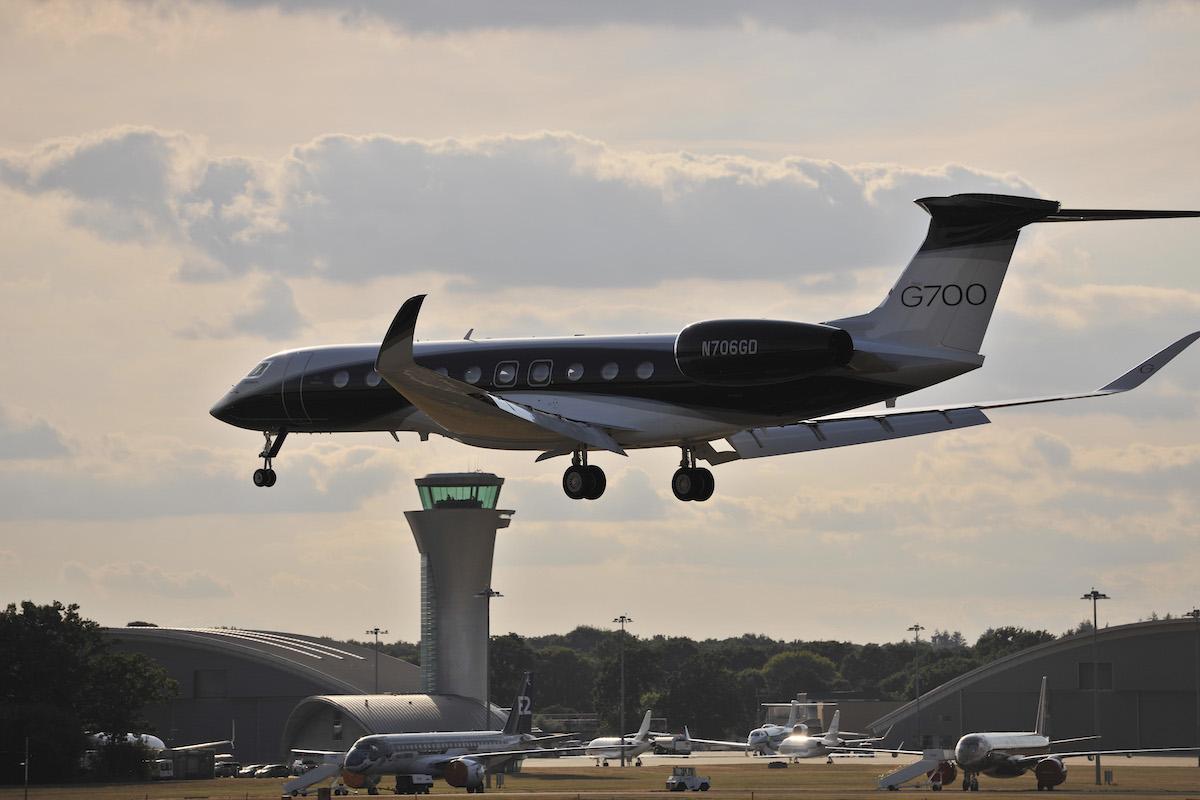
Visitors at the Farnborough International Airshow this year may expect to witness a buoyant gathering of the global aerospace industry at the first major event since the start of the COVID-19 crisis, according to show organizers.
They may also gauge the impact of the pandemic, the Ukraine war, Brexit and the industry's emphasis on sustainability.
Industry has not been able to gather at Farnborough since 2018; the 2020 edition could not go ahead due to strict COVID restrictions, nor could its counterpart, the Paris Air Show, the following year.
Compared to the 2018 edition, “the show will have broadly the same size,” says Gareth Rogers, CEO of the Farnborough International exhibition and conference center. The number of exhibitors is down to 1,200, from 1,500 in 2018. The surface sold, however, is said to be stable. “Some exhibitors are taking more space,” says Rogers.
Attendance will be measured against that of 2018, which stood at 80,000 trade visitors over five days. Some 45% came from a total 111 countries, meaning the majority came from the UK.
Several new factors will influence attendance this year. One has its origins before the pandemic, as the organizers of the 2020 edition had planned on a format change, terminating the public weekend.
Instead, they chose to open the Friday to the public with a focus on the 16-21 age group. That day will try to address the global skills shortage in aerospace, Rogers explains. “The industry will get the audience they want to speak to,” he says. “It is about inspiring the next generation.” Admission is free for any visitor aged up to 21. The show is promoted toward those who have made a decision to start science, technology, engineering and mathematics studies and will enter the workforce in the coming years, says Rogers.
Regardless of its age or interest, the general public is welcome, typically for £32 ($38), instead of the one-day fee of £45 for a trade visitor.
Russia's invasion of Ukraine is having ramifications at Farnborough. First, as a result of Western sanctions, no Russian company is exhibiting. “There were only a handful of them,” says Rogers. Some, however, were established combat aircraft manufacturers or would-be competitors to Airbus and Boeing, such as Irkut.
Another impact of the Ukraine crisis may be seen in the flying display. “Most forces are combat-ready and they hesitate to participate in an air show,” says Rogers. They were still in uncertainty mode a few days before the show. That reluctance did not seem to impact the Royal International Air Tattoo, held the weekend before Farnborough, where static and air displays were representative of a show of force by NATO and international allies, including air forces from the Americas, Europe and the Middle East.
Brexit, meanwhile, has yet to translate into any concrete change for the show, according to Rogers. “We are not seeing any impact,” he says. “It is still early, the industry is global and contracts in aerospace are locked in over long periods of time.”
As for sustainability, unnoticeable changes this year may have a significant impact. Power generators are fueled with sustainable biofuel, resulting in a 90% reduction in net carbon dioxide emissions, according to Rogers. Food caterers have to source food locally and single-use plastics must be replaced with recyclable materials. Then, waste collection companies must recycle everything that is recyclable.
Those evolutions are part of a long-term plan to become a sustainable show, thanks to a partnership with decarbonization expert the Carbon Trust, says Rogers.
Looking forward to the opening of the 2022 edition of the Farnborough International Airshow, “there is a mix of excitement and trepidation,” he says.

